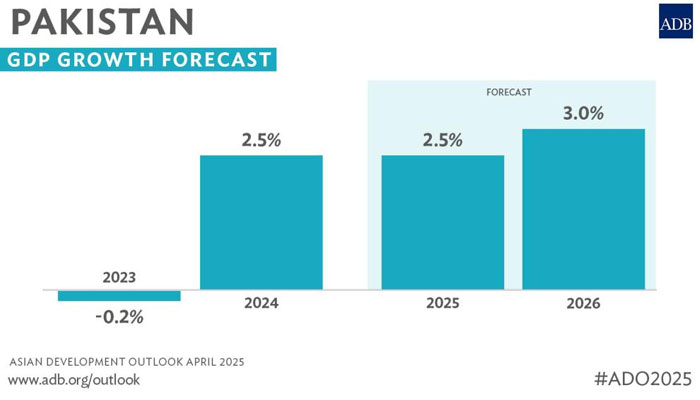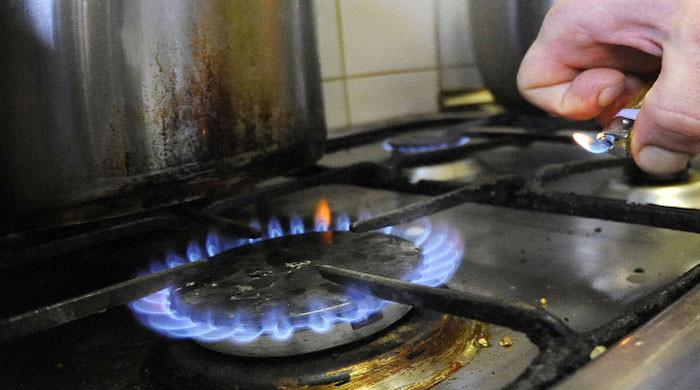Stability, recovery: ADB projects reforms-driven 2.5% GDP growth for Pakistan
Islamabad's GDP growth expected to reach 3% in FY2026, says lender
April 09, 2025

- Growth outlook result of stable macroeconomic position due to IMF.
- Lender observes stability due to reforms in tax, energy sectors.
- FY25, growth expected to be driven by private sector investment.
ISLAMABAD: Issuing its economic forecast for Asian countries on Wednesday, the Asian Development Bank (ADB) has pointed out signs of stability and recovery in Pakistan's economy saying that the country's gross domestic product (GDP) is expected to grow by 2.5% in fiscal year 2025 due to ongoing reforms.
In its Asian Development Outlook (ADO) for April 2025, the lender said that the country's economy was showing signs of stability and recovery with growth in FY25 — ending June 30, 2026 — as the effects of tight macroeconomic policies and progress in economic reforms take effect.
The growth outlook, it noted, was being helped by a more stable macroeconomic position helped by the International Monetary Fund's (IMF) Extended Fund Facility (EFF) arrangement that began in October 2024, adding that the GDP growth was expected to reach 3% in FY2026.
Furthermore, adherence to the economic adjustment program is critical for building resilience and enabling sustainable and inclusive growth.
"Pakistan's economy has benefited from improved macroeconomic stability through robust reform implementation in areas such as tax policy and energy sector viability.
"Growth is projected to persist in 2025 and to increase in 2026. Sustained implementation of policy reforms is vital to buttress this growth trajectory and fortify fiscal and external buffers," said ADB Country Director for Pakistan Emma Fan.

In FY25, growth is expected to be driven by a rebound in private sector investment linked to progress on reform measures, perceptions of greater economic stability, and a stable foreign exchange market.
The successful implementation of the reform program is anticipated to continue creating a more stable macroeconomic environment and gradually remove structural barriers to growth.
Economic activity in both the industrial and service sectors will benefit from recent monetary easing and macroeconomic stability. Additionally, strong remittance inflows, lower inflation, and monetary easing are likely to support aggregate demand.
Average inflation is projected to decline significantly to 6% in FY25 and further to 5.8% in FY26. That’s being driven by continued moderation in food inflation, stable global oil and commodity prices, moderate domestic demand conditions, and a favourable base effect.
Female labour force participation remains low in Pakistan compared to regional and peer countries and enabling more women to work outside the home could boost productivity and output while advancing female empowerment.











